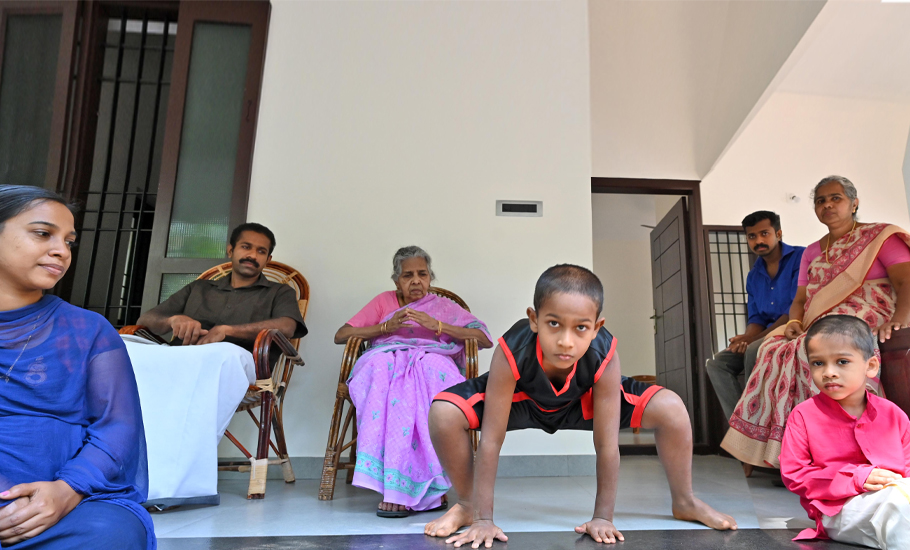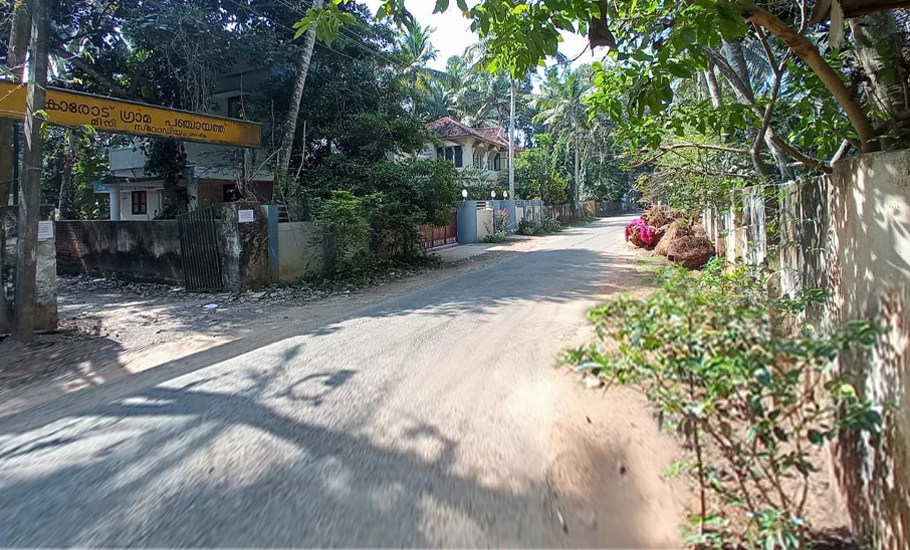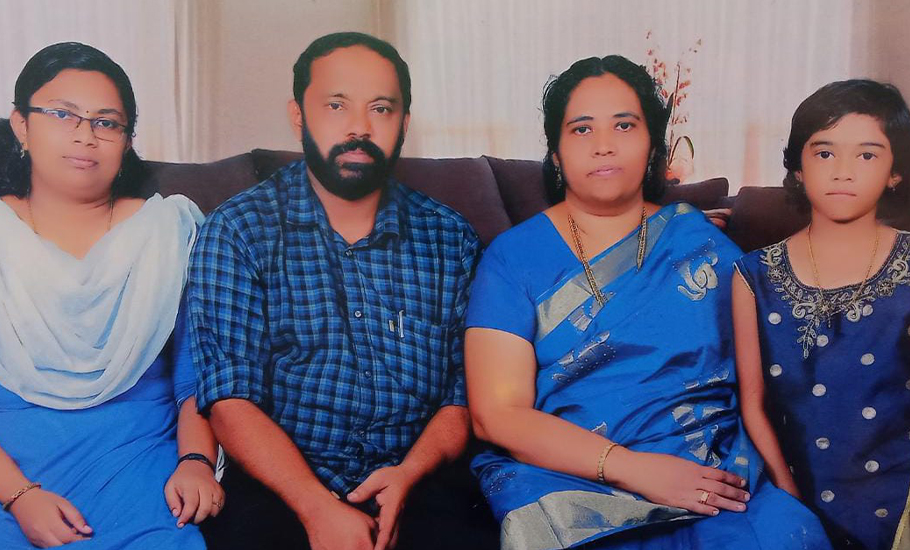
- Home
- India
- World
- Premium
- THE FEDERAL SPECIAL
- Analysis
- States
- Perspective
- Videos
- Sports
- Education
- Entertainment
- Elections
- Features
- Health
- Business
- Series
- In memoriam: Sheikh Mujibur Rahman
- Bishnoi's Men
- NEET TANGLE
- Economy Series
- Earth Day
- Kashmir’s Frozen Turbulence
- India@75
- The legend of Ramjanmabhoomi
- Liberalisation@30
- How to tame a dragon
- Celebrating biodiversity
- Farm Matters
- 50 days of solitude
- Bringing Migrants Home
- Budget 2020
- Jharkhand Votes
- The Federal Investigates
- The Federal Impact
- Vanishing Sand
- Gandhi @ 150
- Andhra Today
- Field report
- Operation Gulmarg
- Pandemic @1 Mn in India
- The Federal Year-End
- The Zero Year
- Science
- Brand studio
- Newsletter
- Elections 2024
- Events
- Home
- IndiaIndia
- World
- Analysis
- StatesStates
- PerspectivePerspective
- VideosVideos
- Sports
- Education
- Entertainment
- ElectionsElections
- Features
- Health
- BusinessBusiness
- Premium
- Loading...
Premium - Events

One family, many religions: The life of Kerala’s Nadars

S Saji, a construction worker in Neyyattinkara, visits temples to offer prayers and seek blessings. So does his father, a Hindu Nadar. Saji’s mother, however, visits the local church to attend the Sunday mass because she is a Christian. To many, the arrangement suggests that Saji’s parents had an inter-faith, love marriage. The assumption is only partially correct. Saji’s parents had...
S Saji, a construction worker in Neyyattinkara, visits temples to offer prayers and seek blessings. So does his father, a Hindu Nadar. Saji’s mother, however, visits the local church to attend the Sunday mass because she is a Christian. To many, the arrangement suggests that Saji’s parents had an inter-faith, love marriage. The assumption is only partially correct. Saji’s parents had an inter-faith marriage, but an arranged one. Their alliance isn’t an aberration but a norm for Kerala’s Nadars.
At a time when the country is divided over everything from burqa to biryani, a large community in the far south of Kerala has set a unique example of coexistence and harmony. Families of the Nadar community living in Thiruvananthapuram have members following different religions and living under one roof.
Members of the Nadar community, which constitutes 30 per cent of the population, belong to one caste but two different religions. There are Hindu Nadars and Christian Nadars and most often both are part of the same family.
Marriages between those who follow Hinduism or Christainty, children choosing their own faith irrespective of the religion their parents were born into, cremation of a family member following Hindu rituals and that of another in accordance with Christian rituals are common to the Nadar community.
“My father is Hindu Nadar and mother is Christian. She goes to Church and my two sisters and I used to visit both church and temple. Most of my friends were from the Hindu community and I slowly started feeling closer to Hinduism. However, it is not a big deal for us. We celebrate both Christmas and Onam at home. Both my sisters also were following the Hindu faith, but after getting married to Christian Nadars, they converted,” Saji tells The Federal.
For the Nadar community, religion is not an issue in choosing matrimonial alliances. “All of us got married conventionally. All alliances were arranged by family only,” says Shaji.
Shaji’s marriage was solemnised in a temple, while his sisters, who converted to Christianity after marriage, got married in the nearby church.

The intermingling of faiths is so complete that for outsiders, it is hard to ascertain the religion of people going by their names. For instance, Shaji’s wife is named Shiji, while his sisters are Sherly and Shermila.
When asked what religion his children will follow, Shaji says while they are Hindu for the ‘time being’, what faith they choose to follow in the future is up to them.
Coexistence comes naturally to the Nadar community.
“I have frequently encountered Nadar families where both religions are practised under the same roof. My friend Siva Kumar accompanies his wife Francelet to church on Sundays and she goes with him to the temple—and their children visit both places. When you walk into many Nadar houses, you will see portraits of Christ or Mother Mary jostling for wall-space with pictures of Hindu divinities. It’s a marvellous way of living in harmony and they do it so naturally. It is not to score a point or to impress anyone. It is just their way of being,” Shashi Tharoor, member of Parliament from Thiruvananthapuram, tells The Federal.
The history of the Nadar community dates back to the early 19th century. They are believed to be the descendants of the Pandya Kingdom and are concentrated mostly in the southern districts of Tamil Nadu. The establishment of London Mission Society in the state not only accelerated conversion, but also the educational and economic upliftment of the community.
The Nadar community in Kerala is concentrated in the southern part of Thiruvananthapuram bordering Tamil Nadu. The community is a politically powerful group across 11 out of 14 assembly constituencies in Thiruvananthapuram.
“Apart from Varkala, Attingal and Chirayinkeezhu, the constituencies that lie in the northern part of Thiruvananthapuram, Nadars are strong enough to decide the political mandate of all other constituencies. Traditionally, the community is divided between the Left Democratic Front and United Democratic Front and BJP’s attempts to create communal divisions among them have not yielded much result,” says M Vincent, Congress MLA representing Kovalam assembly constituency since 2016.
Vincent says the Nadar community’s way of living doesn’t surprise him.
“It is neither unusual nor surprising for me. I often attend family functions of people belonging to Nadar community. I know many families in which the mortal remains of the father are buried in the cemetery and that of the mother are cremated.”
BJP’s attempt to mobilise votes through Vaikunda Swamy Dharma Pracharana Sabha (VSDP), a community organisation of Nadars, did not yield much results.
VSDP chairman Vishnupuram Chandrasekharan fielded by the BJP in Kovalam constituency in 2021 could win only 11 per cent votes. “Ayya Vaikunda Swamy, just like Sree Narayana Guru, was a legendary leader who made great contributions to the renaissance movement.
It is not easy for communal forces to appropriate the tradition set by him,” CK Hareendran of CPI(M), MLA from Parassala, yet another constituency where the Nadar community is decisive, tells The Federal.
“People belonging to Hindu and Christian faith living under a single roof is an age-old practice here. Religion is not a rigid thing as it is seen in other parts of India. It is fluid and interchangeable,” says Hareendran.
“You cannot identify their religion by their names,” adds Hareendran. “I will give you the example of Lakshmanan and Sakunthala, a couple from my constituency. For people outside Thiruvananthapuram, these are considered Hindu names, but both Lakshmanan and Sakunthala follow Christianity. Their son is Stephen and their daughter is Azria,” says Hareendran. The Parassala MLA believes that the religio-cultural history of the Nadar community helps keep communal outfits away.

The fluidity of faith is wholly reflected in the life of Suresh Kumar. Kumar, a teacher at Government UP School in Nedumangad, a Hindu Nadar by birth and belief, describes how he interacted with different religions at different points.
Suresh’s father is a Hindu and mother is a Christian. This exposed Suresh to both religions in childhood. As he grew up, he drew closer to the Hindu faith and went on to become the secretary of the Palodu Mahadeva temple committee.
Suresh was married to Deepa, who was a Christian Nadar, and the marriage was solemnised by a bishop. Suresh has two sisters. One is married to a Christian Nadar and the other to a Hindu Nadar.
“In our childhood, we were more interested in Christianity, not because we understood the theological side of it, but there were colourful programmes and competitions for children and we used to get lot of gifts. When we grew up, I was more exposed to a circle of Hindu friends and have become closer to Hinduism. I was an active participant in temple affairs. However, after marriage, my wife’s faith influenced me a lot. I read the Bible and got a deeper understanding of Christianity.”
Not just religion, even the political affiliations of members of the Nadar community differ within the same family.
“My elder sister was married to a Christian and the younger one to a Hindu. The husband of my younger sister is an active BJP worker. He used to be an office-bearer of the party. I, on my part, am an ardent CPI(M) supporter,” says Suresh.
One family, multiple religions and multiple political loyalties. Does it create any friction?
“There are heated political debates at home, but mostly during the time of election,” says Suresh. “As a family, we all are very close to each other. Neither religion nor political affiliation is a big deal for us.”
The Hindu Nadar community falls in the OBC category. The LDF government in 2020 issued an order incorporating the Christian Nadar community too in the OBC list, extending reservations to the group. According to many, the community reference becomes important only when it comes to reservation.
“Considering the strong secular credentials of the community, it would not be easy to polarise. We cannot ignore the fact that such deliberate efforts are being made from all sides—both from the side of the saffron brigade and from the Church,” says K Ansalan, the sitting MLA of Neyyattinkara constituency.
In a divided world tearing itself apart in the name of religion, the Nadar community offers a lesson in coexistence.
